Scope:
The motion of fluids with multiple phases (such as particles, droplets, suspensions) is a rapidly growing research area within fluid dynamics, with applications ranging from microfluidics (inkjet printers, lab-on-a-chip) to environmental physics (large-scale sedimentation processes in rivers and pollution or pollen transport in the atmosphere). The use of numerical simulations has become crucial to study and understand these complex flows. Given the large spread in Reynolds number and other characteristic properties of the suspended phase, numerical methods suitable to address these problems become more and more diverse and specific, with examples such as Stokes solvers, Lattice Boltzmann methods, low and high-order grid-based method (such as Spectral Elements), and various interface tracking and immersed boundary methods. Given the wealth of physics, there are several unresolved issues even related to fairly basic mechanisms, such as rheology and microstructure of suspensions of spherical particles. Recent accurate experimental studies, but also simulations together with innovative theoretical studies have made it possible to further penetrate the details of such flows.
At KTH, the research and education within multiphase flow and numerical methods is organised within the Linné FLOW Centre and the Swedish e-Science Research Centre (SeRC). The present school is also organised in collaboration with the KCSE (KTH Computational Science and Engineering) Graduate School.
Invited lecturers:
Gretar Tryggvason,
University of Notre Dame, Notre Dame (IN), USA
Paul F. Fischer,
Argonne National Laboratories, Argonne (IL), USA
Sauro Succi,
Istituto per le Applicazioni del Calcolo “Mauro Picone” (C.N.R.), Rome, Italy
Wim-Paul Breugem,
Technical University Delft, Delft, The Netherlands
Topics:
The summer school is intended to give the students an overview of both general and more specific topics within the area of numerical methods and multiphase flows, including the latest research. The schedule is:
• Monday (3/9), starting just before lunch
Welcome, organisation of the school, administration
Gretar Tryggvason: General aspects of the simulation of multiphase flows
Paul Fischer: Introduction to high-performance computing (HPC), parallel computers
• Tuesday (4/9)
Gretar Tryggvason: Interface tracking (Lectures and exercises)
• Wednesday (5/9)
Paul Fischer: The spectral element method (Lectures and exercises)
• Thursday (6/9)
Sauro Succi: Lattice Boltzmann method (Lectures and exercises)
• Friday (7/9)
Wim-Paul Breugem: Immersed boundary method (Lectures and exercises)
Wrap-up of school, projects
Location and outline:
Lectures will be given September 3 to 7, 2012 at the KTH main campus, located close to the city centre of Stockholm, Sweden. A project will be performed by pairs of student and sent electronically to the school organisers for the final evaluation, worth 3.5 ECTS points (if requested).
Registration (until July 13, 2012):
The course is free of charge, and includes lunches and accommodation (youth-hostel style). Travel is not supported by FLOW. Interested PhD students are invited to contact Philipp Schlatter, pschlatt@mech.kth.se. For further information and registration visit the homepage of the Linné FLOW Centre(http://www.flow.kth.se). The number of participants is limited to 50 students.
Notification of acceptance: at the latest July 20, 2012.
Contact and organiser:
Dr. Philipp Schlatter& Prof. Luca Brandt
KTH Mechanics, Osquars Backe 18
SE-100 44 Stockholm, Sweden, pschlatt@mech.kth.se, luca@mech.kth.se




